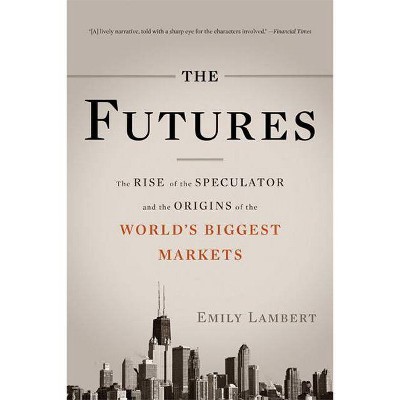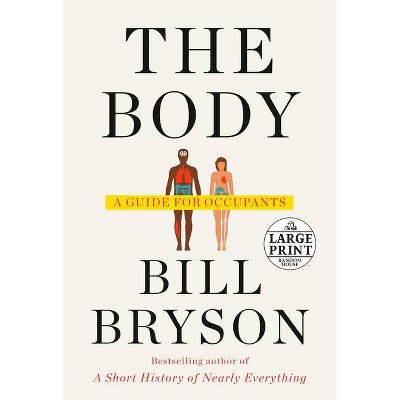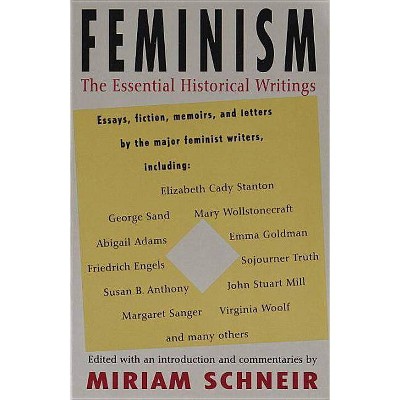The Futures of Feminism - by Valerie Bryson (Paperback)

Similar Products
Products of same category from the store
AllProduct info
<p/><br></br><p><b> About the Book </b></p></br></br>This book makes the case for an inclusive form of socialist feminism that puts multiply disadvantaged women at its heart. It moves feminism beyond contemporary disputes, including those between some feminists and some trans women. Its combination of accessibility, new thinking and academic rigour will make it attractive to a wide market.<p/><br></br><p><b> Book Synopsis </b></p></br></br>This book makes the case for an inclusive form of socialist feminism that puts women with multiple disadvantages at its heart. It moves feminism beyond contemporary disputes, including those between some feminists and some trans women. Combining academic rigour with accessibility, the book demystifies some key feminist terms, including patriarchy and intersectionality, and shows their relevance to feminist politics today. It argues that the analysis of gender cannot be isolated from that of class or race, and that the needs of most women will not be met in an economy based on the pursuit of profit. Throughout, the book asserts the social, economic and human importance of the unpaid caring and domestic work that has been traditionally done by women. It concludes that there are some grounds for optimism about a future that could be both more feminist and more socialist. <i></i><p/><br></br><p><b> From the Back Cover </b></p></br></br>In <i>The futures of feminism</i> Valerie Bryson makes the case for an inclusive form of socialist feminism that puts multiple disadvantaged women at its heart. She uses both established theories and new thinking to investigate contemporary issues, including the fierce disputes between some feminists and trans women and between neoliberal and socialist feminists. Bryson demystifies key feminist terms, including patriarchy and intersectionality, and shows their relevance for politics today. She argues throughout that the analysis of gender cannot be isolated from that of class or race, that patriarchy is inexorably entangled with capitalism and that the needs of most women will not be met in an economy based on the pursuit of profit. She also asserts the social, economic and human importance of the unpaid caring and domestic work that has been traditionally done by women and the need to redistribute this and value it properly. She concludes that there are grounds for optimism about a future that could be both more feminist and more socialist. Rigorous but accessible, <i>The futures of feminism</i> is suitable for sixth-form, undergraduate and postgraduate students. It will also appeal beyond academia, to all those interested in feminist politics and gender issues.<p/><br></br><p><b> Review Quotes </b></p></br></br><br>'Throughout the book, Bryson successfully makes difficult theoretical concepts more accessible, and she consistently points to further reading. Due to this, her book would serve as a useful introductory text for late high school and undergraduate students. Bryson's analysis of feminist socialism and her call for more inclusive communities and policies that start with the most disadvantaged among us is a welcome and highly accessible addition to the literature; and should perhaps be required reading for policy-makers.' <i>Professional Historians Association</i>, Kirra Minton<br><p/><br></br><p><b> About the Author </b></p></br></br>Valerie Bryson is Emerita Professor of Politics at the University of Huddersfield. Her other books include<i> Feminist Debates </i>(1999), <i>Feminist Political Theory: Third Edition </i>(2016) and <i>Gender and the Politics of Time</i> (2007).
Price History
Price Archive shows prices from various stores, lets you see history and find the cheapest. There is no actual sale on the website. For all support, inquiry and suggestion messagescommunication@pricearchive.us




















